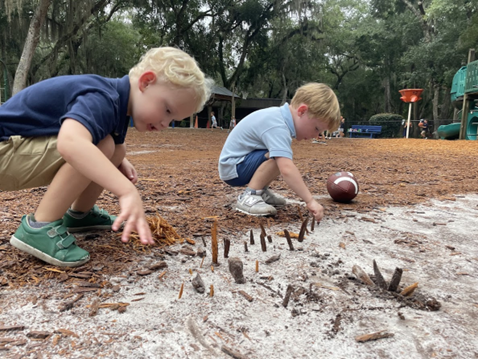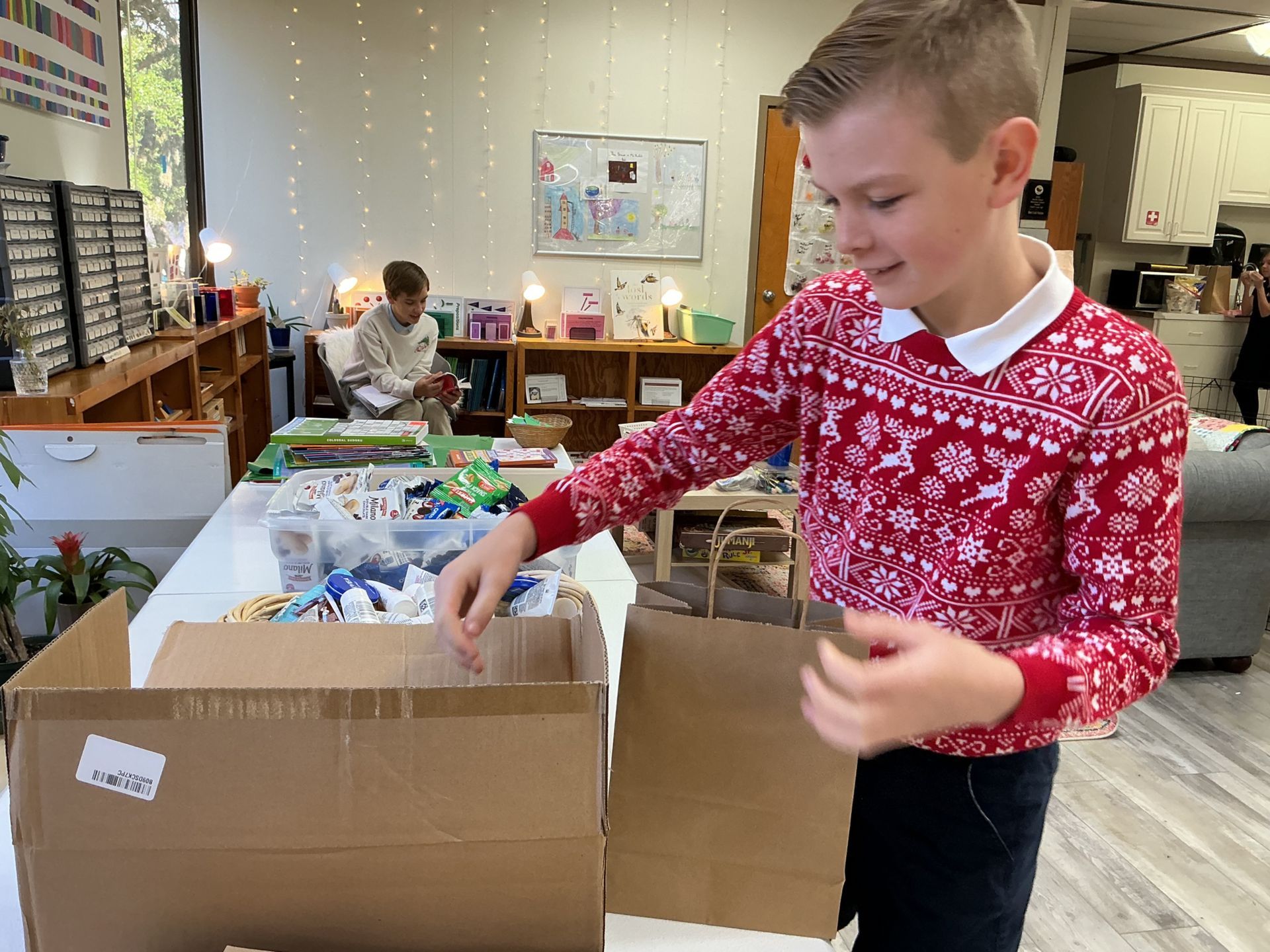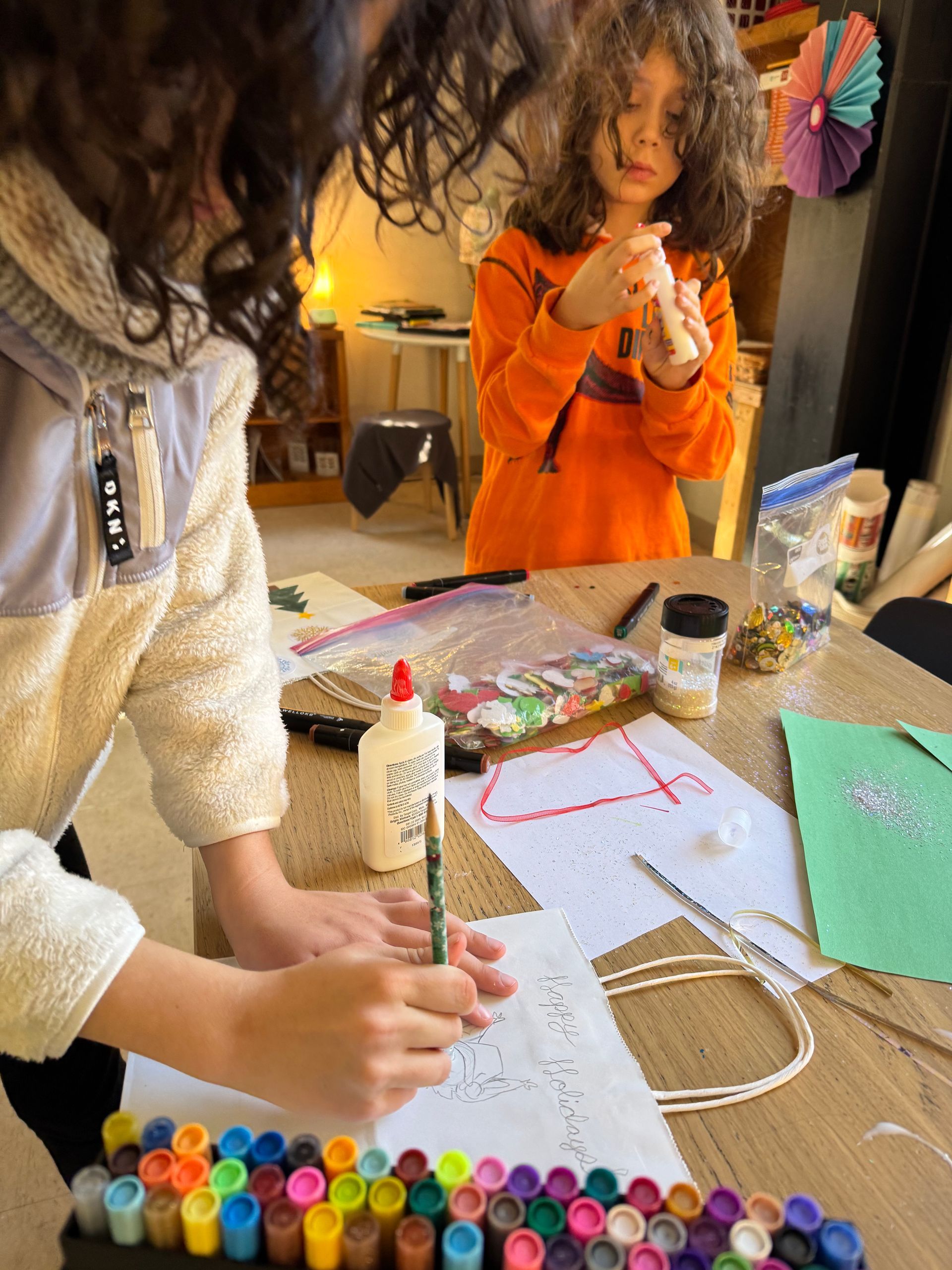
Unstructured play is a cornerstone of the Montessori philosophy.

Unstructured play is a cornerstone of the Montessori philosophy, offering children the freedom to explore, imagine, and create on their own terms. This essential part of early childhood development nurtures independence, collaboration, and creativity, aligning perfectly with Montessori principles.
In our Montessori environment, unstructured play extends to daily outdoor exploration, where nature serves as a living classroom. It allows children to connect with the world around them, transforming their environment into an endless source of learning.
As part of our exploration of Native American culture, the children have eagerly incorporated their knowledge into imaginative play. They played in a tipi, pretended to cook soup with acorns, and acted out taking care of their community. These activities help them process and internalize cultural lessons in a hands-on, meaningful way. Their creativity shines as they explore the garden and playground, working together to build detailed ‘ant cities’ using natural materials like sticks, leaves, rocks, and mulch.
These moments of discovery occur without the need for colorful, noisy toys. Instead, the simplicity of natural materials and the open-endedness of unstructured play spark children’s curiosity and sense of wonder. Through these experiences, they develop problem-solving skills, empathy, and resilience, while finding joy in teamwork and creativity.
Unstructured play also provides an opportunity for children to experience boredom—a powerful tool for fostering innovation. When given the time and space to be bored, children learn to draw on their own resources, turning simple materials into extraordinary creations.
By allowing children to take the lead in their play, we honor their natural drive to learn, grow, and thrive.
By Ms. Lina, Primary Educator


